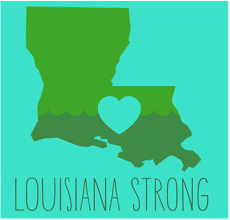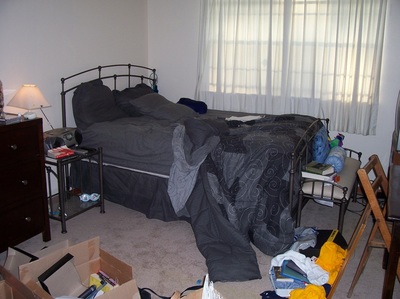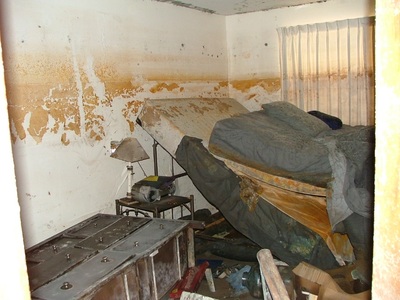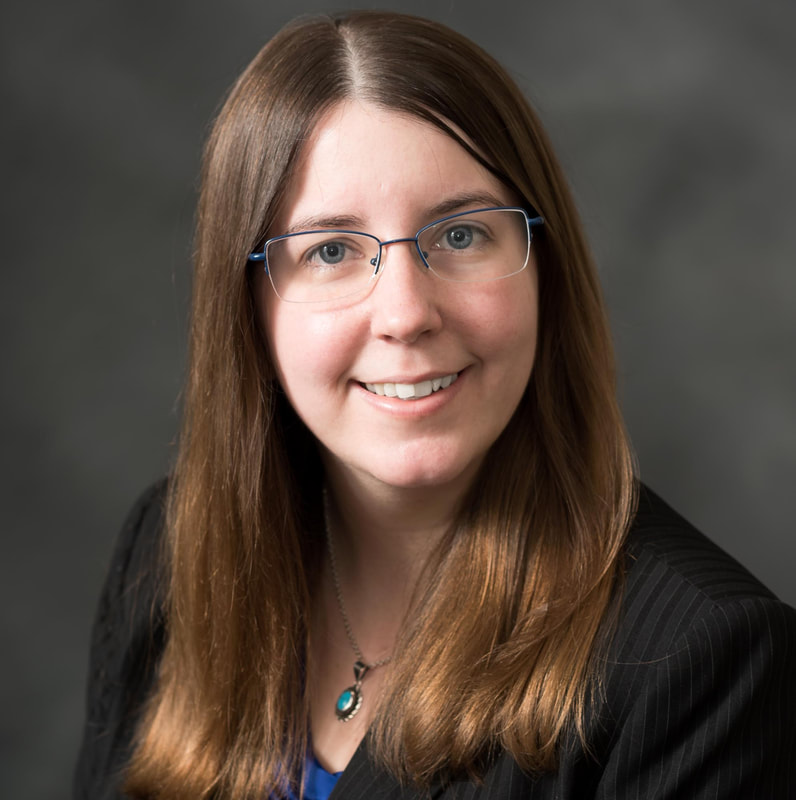Hurricane Katrina is not relevant to the recent, unprecedented, natural disaster that has devastated central-/southern-Louisiana. But it is on my mind.
 (click image for source)
(click image for source) In August 2005, I began my junior year of high school in New Orleans, Louisiana.
I remember fantasizing about junior year as an eighth grader, as a freshman, as a sophomore. Everything I’d witnessed in stories and in real life suggested that senior year would be stagnant, miserable, a wasted year of waiting until society allowed me to attend the college that would have already accepted me the previous summer.
Junior year, though? That was going to be the year for change.
Sophomores, they were still kids. But a junior was over the hump. A junior was an upperclassman. Juniors had friends with cars. I remember daydreams of “losing myself”—of turning down the wrong path, of making the wrong friends, of spewing all my hate and anger and despair into the world. I’d figure out how to make my hair look amazing, but dirty-amazing, and I’d acquire clothes that would broadcast my superiority. I’d participate in a slew of illegal activities. I’d stay out late and I’d yell at people and I’d be exceptionally tragic.
I consciously romanticized my anticipated self-destruction.
An unhealthy habit, to be sure—but I was 15 years old.
I remember fantasizing about junior year as an eighth grader, as a freshman, as a sophomore. Everything I’d witnessed in stories and in real life suggested that senior year would be stagnant, miserable, a wasted year of waiting until society allowed me to attend the college that would have already accepted me the previous summer.
Junior year, though? That was going to be the year for change.
Sophomores, they were still kids. But a junior was over the hump. A junior was an upperclassman. Juniors had friends with cars. I remember daydreams of “losing myself”—of turning down the wrong path, of making the wrong friends, of spewing all my hate and anger and despair into the world. I’d figure out how to make my hair look amazing, but dirty-amazing, and I’d acquire clothes that would broadcast my superiority. I’d participate in a slew of illegal activities. I’d stay out late and I’d yell at people and I’d be exceptionally tragic.
I consciously romanticized my anticipated self-destruction.
An unhealthy habit, to be sure—but I was 15 years old.
None of it happened, of course. None of it ever would have happened outside my imagination.
But, that was the year everything changed.
We started classes on a Wednesday. I remember feeling uncharacteristically optimistic, especially about my English class. I’d already survived one round of English AP, and my confidence in my writing was at a cautious but historic high point. On Thursday, our class met for the first and last time.
I admired so many of the other students in that room, and somehow, one of them started a conversation with me about writing. I think we even discussed the primordial draft of Bless the Skies. She expressed an interest in reading some of what I’d put together.
Friday afternoon, I said goodbye to my friends—for the weekend, I thought. I wouldn’t see any of them again until December.
Saturday morning, when I woke up, I packed everything I considered too valuable to lose. I was luckier than most. I’d been playing this game since I was a kid, challenging myself to pick and choose which belongings really meant enough to me to save.
No one else in my family played that game. They left everything: wedding albums, videos, heirlooms, collectors’ items. Everything.
But, that was the year everything changed.
We started classes on a Wednesday. I remember feeling uncharacteristically optimistic, especially about my English class. I’d already survived one round of English AP, and my confidence in my writing was at a cautious but historic high point. On Thursday, our class met for the first and last time.
I admired so many of the other students in that room, and somehow, one of them started a conversation with me about writing. I think we even discussed the primordial draft of Bless the Skies. She expressed an interest in reading some of what I’d put together.
Friday afternoon, I said goodbye to my friends—for the weekend, I thought. I wouldn’t see any of them again until December.
Saturday morning, when I woke up, I packed everything I considered too valuable to lose. I was luckier than most. I’d been playing this game since I was a kid, challenging myself to pick and choose which belongings really meant enough to me to save.
No one else in my family played that game. They left everything: wedding albums, videos, heirlooms, collectors’ items. Everything.
Flash forward two weeks.
In September 2005, I began my junior year of high school in Richmond, Virginia. I was effectively homeless.
And now, as I watch the devastation unfold in Louisiana, I think of the high school students. Old enough to feel the full weight, too young to have an ounce of control or agency, all their collected belongings destroyed, all the scenery of their lives blackening with mold.
The figures right now say 96%, 97% of some parishes’ structures are just… totaled. Drowned. Gone.
I’ve been reliving how it felt.
You had hopes and plans and daydreams about this year. You started high school within the last week. You were about to move into a college dorm for the first time. You were about to make a new friend. You bought new clothes. You’d just moved here. You were about to change how you viewed yourself.
And you didn’t evacuate. Many of us, for Katrina, we had warning. We were able to get out. We were able to stay away until services and shelter were made available for our return.
But you were here. You experienced it. You had to be rescued in a pirogue or an inflatable raft.
People who did remain in the region for Katrina were trapped and needed rescue—and this time, this different time, that was basically everyone.
For the six months that I lived in Richmond, unable to return to my city, to my home, I barely existed. I ate lunch every day with a group of people whose faces and names I never learned, because it was where I sat the first day, and because they never told me to stop sitting with them. I never spoke to them after the first day. I had nothing to discuss. I was a zombie.
The few people who attempted to reach out to me were met with the confusing, distant responses of someone who only half heard them. I remember those moments like out-of-body experiences, and I feel so badly for those teachers and students. Though I didn’t have the capacity to show it, I appreciated their attempts. The attempts did help, even when they didn’t help.
And it’s happened—differently, but the same, but worse—all over again, to a new generation.
A new generation of scarred Louisianians.
It hit me today.
That trauma barely registered while I lived it. And the tenth anniversary left me unscathed.
But today, 11 years later, I felt myself slip back into the fishbowl that distorted the world when I turned 16. Far-off, muted, unable to register the scope of the moment. Neither deep in thought nor aware of my surroundings.
We’re here with you, my neighbors. We’re here with you.
We’re feeling it with you.
The storm wasn’t named and there’s no discernible manmade failure and you, yourselves, don’t have the international name-recognition of the city of New Orleans. So, the world will discuss it much less. There won’t be a 10-year-anniversary memorial to commemorate what you’re suffering.
But it is awful. It is painful. You will feel lost. You will feel helpless. You will despair in the worry that you’ll never build your life back. You will worry that if you do build your life back, it will only flood again. You’ll worry that you aren’t doing enough—because you can’t do enough.
Except, we are Louisiana. We’re experienced in loss. We’re well-versed in hard choices.
It gets better. You’ll endure. You’ll realize how much you’re capable of facing.
You’re capable of facing anything and everything.
Just get through today.
Let’s help them get through today—it’s different than they’d hoped. It’s different than they’d planned.
The American Red Cross is accepting donations. Call 1-800-REDCROSS or text LAFLOODS to 90999 to donate $10. If you click the link, you can specifically designate your donation for the Louisiana floods.
An edit: I chose the Red Cross because I remembered them supplying my family with money for air mattresses post-Katrina. It was the one piece of visible, tangible, immediate assistance that I remember receiving. However, please donate to whichever organization or cause you support, that makes you feel comfortable. And share those alternate options in the comments!
In September 2005, I began my junior year of high school in Richmond, Virginia. I was effectively homeless.
And now, as I watch the devastation unfold in Louisiana, I think of the high school students. Old enough to feel the full weight, too young to have an ounce of control or agency, all their collected belongings destroyed, all the scenery of their lives blackening with mold.
The figures right now say 96%, 97% of some parishes’ structures are just… totaled. Drowned. Gone.
I’ve been reliving how it felt.
You had hopes and plans and daydreams about this year. You started high school within the last week. You were about to move into a college dorm for the first time. You were about to make a new friend. You bought new clothes. You’d just moved here. You were about to change how you viewed yourself.
And you didn’t evacuate. Many of us, for Katrina, we had warning. We were able to get out. We were able to stay away until services and shelter were made available for our return.
But you were here. You experienced it. You had to be rescued in a pirogue or an inflatable raft.
People who did remain in the region for Katrina were trapped and needed rescue—and this time, this different time, that was basically everyone.
For the six months that I lived in Richmond, unable to return to my city, to my home, I barely existed. I ate lunch every day with a group of people whose faces and names I never learned, because it was where I sat the first day, and because they never told me to stop sitting with them. I never spoke to them after the first day. I had nothing to discuss. I was a zombie.
The few people who attempted to reach out to me were met with the confusing, distant responses of someone who only half heard them. I remember those moments like out-of-body experiences, and I feel so badly for those teachers and students. Though I didn’t have the capacity to show it, I appreciated their attempts. The attempts did help, even when they didn’t help.
And it’s happened—differently, but the same, but worse—all over again, to a new generation.
A new generation of scarred Louisianians.
It hit me today.
That trauma barely registered while I lived it. And the tenth anniversary left me unscathed.
But today, 11 years later, I felt myself slip back into the fishbowl that distorted the world when I turned 16. Far-off, muted, unable to register the scope of the moment. Neither deep in thought nor aware of my surroundings.
We’re here with you, my neighbors. We’re here with you.
We’re feeling it with you.
The storm wasn’t named and there’s no discernible manmade failure and you, yourselves, don’t have the international name-recognition of the city of New Orleans. So, the world will discuss it much less. There won’t be a 10-year-anniversary memorial to commemorate what you’re suffering.
But it is awful. It is painful. You will feel lost. You will feel helpless. You will despair in the worry that you’ll never build your life back. You will worry that if you do build your life back, it will only flood again. You’ll worry that you aren’t doing enough—because you can’t do enough.
Except, we are Louisiana. We’re experienced in loss. We’re well-versed in hard choices.
It gets better. You’ll endure. You’ll realize how much you’re capable of facing.
You’re capable of facing anything and everything.
Just get through today.
Let’s help them get through today—it’s different than they’d hoped. It’s different than they’d planned.
The American Red Cross is accepting donations. Call 1-800-REDCROSS or text LAFLOODS to 90999 to donate $10. If you click the link, you can specifically designate your donation for the Louisiana floods.
An edit: I chose the Red Cross because I remembered them supplying my family with money for air mattresses post-Katrina. It was the one piece of visible, tangible, immediate assistance that I remember receiving. However, please donate to whichever organization or cause you support, that makes you feel comfortable. And share those alternate options in the comments!
PS: Do not make this a political issue. Do not post “witty” online comments mocking people who’ve lost their livelihoods. No one deserves this. And if I abhor someone's ideas, they still do not deserve this.
Prove your compassion, not your wit.
Prove your compassion, not your wit.



 RSS Feed
RSS Feed


